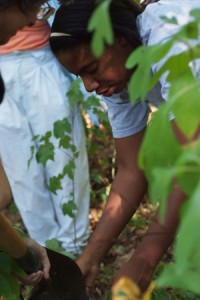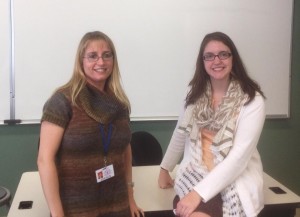I am very pleased to announce a new course for Spring 2015, that will engage Mason students in the community in a whole new way: social enterprise. Historically, solutions to community challenges have been the role of the non-profit and government sectors. But what if we created solutions that were profit-generating, and integrated efforts across local government, nonprofits and the private sector to make them more transformative and sustainable over time?
 NCLC 475: Social Innovation in Action, Section 007
NCLC 475: Social Innovation in Action, Section 007
In this section of NCLC 475: Social Innovation in Action, taught by myself (Wendy Wagner), students will work with the City of Fairfax Office of Sustainability and local groups around the city (such as high schools and community centers) to reduce waste through composting programs. As a course focused on social enterprise solutions, these projects will have the added goal of being profit-generating for the community organizations and schools who do them.
Mon/Wed 10:30am-1:10
Mondays we will meet in the classroom, with local experts as both guest speakers and consultants to the student teams. Wednesdays, students will be on-site in the community, gathering research and first-hand experience in order to generate and test their innovative solutions. This is an NCC Capstone Course, so students will engage in facilitated discussions assessing and reflecting on their own competence in the skills needed to be successful professionals and citizens.
Community Partner: City of Fairfax Environment & Sustainability
If Fairfax residents learned to compost, they would reduce their waste by 60% and save the city nearly one million dollars per year. How can we accomplish this? Students will: learn about the logistics of composting by establishing a program in Fairfax community; research successful composting programs in other cities across the country; and propose/test a sustainable plan to engage local schools, community centers and other community groups in regular composting.
For more information: wwagner4@gmu.edu
Posted by: Wendy Wagner, Assistant Professor, New Century College SAIL, Director of Community Engagement
Course supported by the Center for Social Entrepreneurship and Social Action and Integrative Learning in New Century College.



 Posted by Wendy Wagner
Posted by Wendy Wagner

